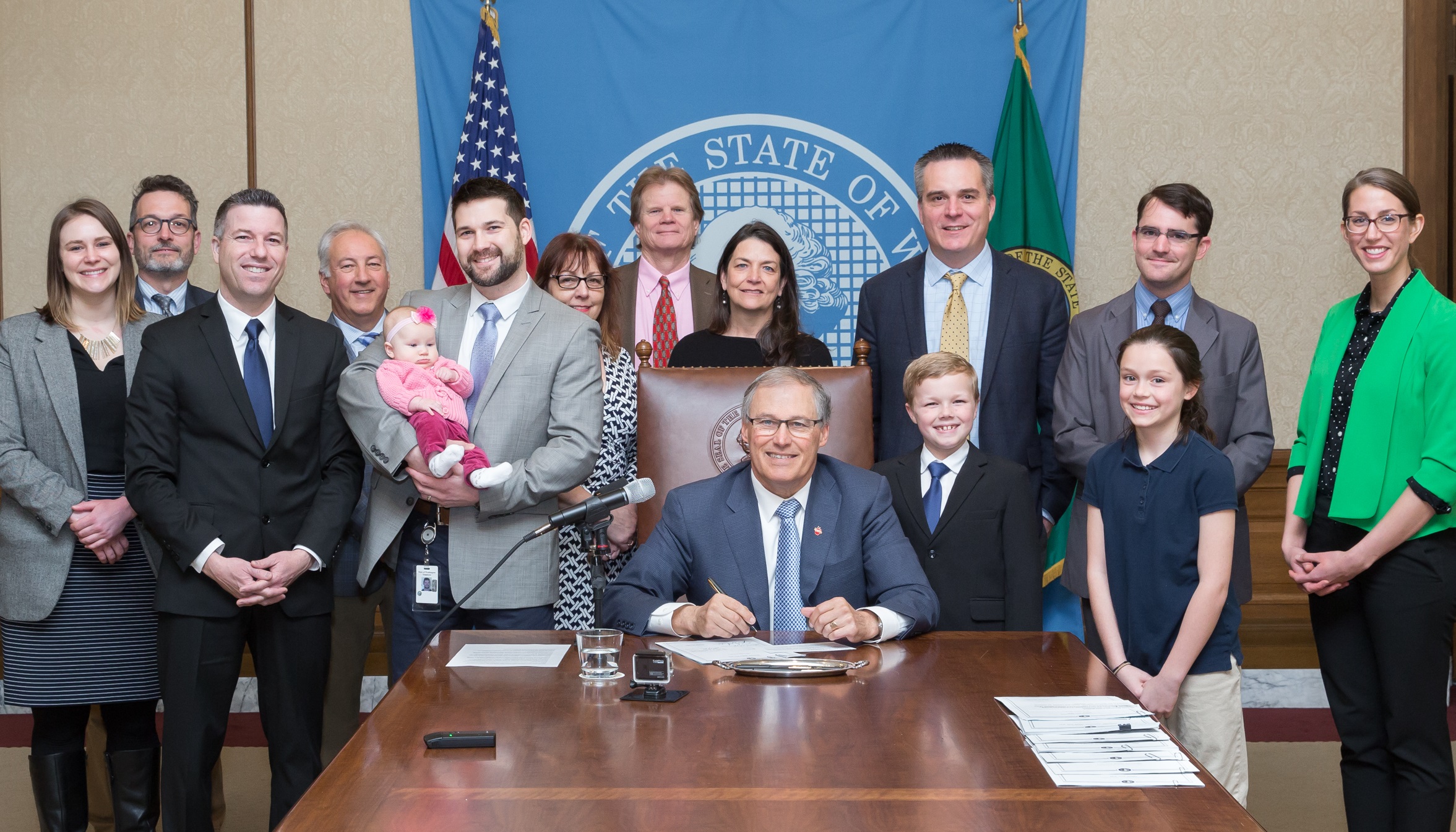OLYMPIA… Efforts to improve the management of Washington forests and reduce the risk of wildfire received another boost today with the signing of Sen. Brad Hawkins’ bill to support “good neighbor” agreements between state and federal agencies.
The new law, created by Senate Bill 6211, gives the state Department of Natural Resources immediate authority to handle revenue and authorize spending under the Good Neighbor Authority agreement signed by DNR and the U.S. Forest Service in 2017.
“The Good Neighbor agreement allows the state to conduct forest management work on federal lands, and this new law helps finalize the state budget mechanism to implement that important work,” said Hawkins.
“Most of the laws created this year won’t take effect until June, but with important forest health projects ready to go, we designed this legislation to become law upon the governor’s signature, which helps everything get established sooner,” Hawkins added. “I am thrilled by the strong bipartisan legislative support this received, because the sooner these cooperative efforts can move forward, the better.”
“I want to thank Senator Hawkins for being such a determined advocate for Washington’s forests,” said Commissioner of Public Lands Hilary Franz. “With this account now officially in place, I’m excited to put Department of Natural Resources crews right to work making all of Washington’s forests healthier, more productive and more resilient.”
Hawkins’ bill received the Senate’s unanimous approval in January. In the House of Representatives, SB 6211 was expanded to create a similar account for the state Department of Fish and Wildlife, which is in the process of negotiating its own Good Neighbor Authority pact with USFS. The Senate unanimously agreed with the updated bill March 6, during the final week of the 2018 legislative session.
This is the second forest health-related law created in two years by legislation Hawkins has introduced. The law created by his Senate Bill 5546 in 2017 directs DNR to establish a framework for assessing the health of fire-prone lands and treating them. The stakeholder-driven policy, inspired by the Wenatchee-based Wildfire Project, sets a specific goal of assessing and treating 1 million acres over 16 years, most likely through prescribed fire and mechanical thinning.











